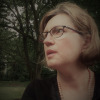Essential Patterns in Poetry Masterclass
Test out techniques and explore the repeating beats of traditional forms.
[…] A line will take us hours maybe;
Yet if it does not seem a moment’s thought,
Our stitching and unstitching has been naught.
– From ‘Adam’s Curse’ by W.B. Yeats
Traditional poetic forms are built upon an essential pattern (or repetition) of meter, rhyme, and lines: the pattern makes poetic statements both precise and memorable. Each poetic form is distinguished by its shape on the page, structure, and sound. As readers, we delight in the artistic effect of the poem, especially when the poetic utterance feels natural and spontaneous. As writers, we appreciate the hard work that goes into creating that memorable ‘sweet sound’ that lingers in the inner ear.
In this 12-week Masterclass, participants will practice techniques that deepen an understanding of the essential patterns of several traditional forms. The forms studied in this course are: triolet, rondeau, villanelle, sonnet, sestina, and ballad.
Each session, we will focus on one form, except the double-assignment week, when we combine two forms (the triolet and rondeau). We will listen to mini-lectures, read short articles about the history of each form, read example poems from a carefully curated list, memorise at least one poem in each form, and, with help of generative exercise, create new work of our own in each session.
The work will aim to address questions about mastering the art of writing poetry. For example: Can we write in traditional form without being able to recite poems by heart? What is the effect of memorisation in tuning our inner ear to formal poetry? How do we bring form and substance together? By the end of this Advanced Masterclass, participants will leave with a stock of memorised poems, a stack of new drafts, and a better understanding of the essential patterns that create poetry we remember and cherish.
Masterclasses are an expanded version of our International Courses, with a much deeper consideration of technical craft and critical theory. These 12-week courses (maximum 12 places) are for advanced students only, and fluency with poetic language and ideas will be assumed. There are no live chats and they are suitable for UK and International students.
Concessions & Accessibility
To apply for a concession rate, please send relevant documentation showing your eligibility for one of our concessions to [email protected]. Conditions of eligibility are detailed here. If you have any questions or wish to be added to the waiting list of a sold-out course, please email [email protected].
What to Expect
Please check the left hand side of this page for information on how this course works in practice, under the heading ‘Course Style‘. If you’re unsure as to what any of the terms there mean, or if this course is a good fit for you, please visit our What to Expect page which includes some further information on how our courses function.
Image credit: @rachel-claire
About Carmen Bugan  View Profile
View Profile
Carmen Bugan, George Orwell Prize Fellow, is an award-winning author of ten books that include memoir, essays, and criticism. Her work has been translated into several languages, gathered international praise, and has been widely anthologized. Carmen’s selected poems, Lilies from America, won a Poetry Book Society (UK) Special Commendation, and her book of essays on politics and poetics, Poetry and the Language of Oppression (Oxford Univ. Press) was named “an essential book for writers” by Poets and Writers magazine. Carmen’s memoir, Burying the Typewriter, won the Bread Loaf Nonfiction Prize, was shortlisted for the Dayton Literary Peace Prize and the Orwell Prize for Political Writing, was BBC Radio 4 Book of the Week, and has been featured on NPR, ABC, PRI and the BBC. The book will be released again as a “modern classic” with Picador/ Macmillan in June 2026. Carmen was educated at the University of Michigan (BA), Lancaster University, UK (MFA), and Oxford University, UK (PhD), and she has been teaching creative writing worldwide for over twenty years to people aged 12 to 92.
"I look forward to the challenge each course presents, and appreciate the warmth of response and commitment of other students. They become like trusted friends for and sometimes after the duration of the course."
 Hoax Poetics: A Fakery Masterclass
Hoax Poetics: A Fakery Masterclass Forms of Storytelling Masterclass: A Story is a Story is a Story
Forms of Storytelling Masterclass: A Story is a Story is a Story Writers not Users: A Masterclass on Living & Writing in the Age of AI
Writers not Users: A Masterclass on Living & Writing in the Age of AI